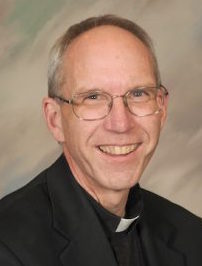Fifty years ago last Christmas, a young theology professor gave a radio address on “The Church of the Future.” The priest-professor said in part:
“From the crisis of today the Church of tomorrow will emerge — a Church that has lost much. She will become small and will have to start afresh more or less from the beginning. … But in all of the changes at which one might guess, the Church will find her essence afresh and with full conviction in that which was always at her center: faith in the triune God, in Jesus Christ, the Son of God made man, in the presence of the Spirit until the end of the world. … And so it seems certain to me that the Church is facing very hard times. We will have to count on terrific upheavals. But I am equally certain about what will remain at the end: the Church of faith.”

The priest predicting this and much more was Father Joseph Ratzinger, the future Pope Benedict XVI. This short talk has become famous as a prophetic insight into the drama of the Church in recent decades and was reprinted in English in 2009 along with four other selections in a small volume called “Faith and the Future.”
Much of the volume addresses the relationship between faith and science, a question of even greater relevance today as ideas then in their infancy have matured. The apparent randomness and paradox of quantum physics challenges the orderly idea of creation by divine Wisdom; artificial intelligence gains capabilities that surpass those of a human thinker; the haphazard chances of reproduction are to yield to genetic engineers who can perfect the production of our species.
While the “crisis of today” Father Ratzinger cited has many aspects, a key factor in that crisis is the perception that faith is irrelevant to the future. Faith in this view represents a set of naïve, superseded explanations and rituals that may retain artistic or sentimental appeal but bring no genuine contribution to human progress.
So what is “the Church of faith” that will remain? More concisely, what is faith?
[perfectpullquote align=”left” bordertop=”false” cite=”” link=”” color=”” class=”” size=”16″]“Faith is a disclosure of a reality granted only to the one who trusts and loves.”[/perfectpullquote]Many years later, Pope Benedict introduced the Year of Faith in 2010 in his apostolic letter “Porta Fidei” (The Door of Faith) and elaborated on a central distinction in Catholic thought on faith: “fides quae” and “fides qua.” To oversimplify, “fides quae” is the content of faith, the set of truths faith affirms, what one believes. “Fides qua” is the personal embrace of this faith, the act of affirming the teachings as true, the faith by which, or with which, we believe.
For me, this technical distinction is captured more succinctly in another of those 1969 radio talks. Then-Father Ratzinger put it simply:
“Faith is not a diluted form of natural science, an ancient or medieval preparatory stage that must vanish when the real thing turns up; rather it is something essentially different. It means the same thing as ‘I trust you’ or even ‘I rely upon you.’ The basic form of Christian faith is not ‘I believe something’ but ‘I believe you.’ Faith is a disclosure of a reality granted only to the one who trusts and loves. …”
This is the faith we embrace at baptism, the faith we profess in the Creed and pledge in the renewal of our baptismal promises on Easter — belief in God that is not simply an affirmation that God is, but that we can trust God who has revealed himself fully to us in Jesus and dwells within us in his Spirit. This is the faith by which we become disciples of Christ rather than mere scholars or admirers.

There are many beautiful and inspiring truths revealed to us by God and probed by reason, and we study and engage them to our spiritual benefit. But mature faith itself does not rely on the grasp of a honed intellect but on the serene love of a trusting heart. It is not an assent to abstract truth, but trust in a Person whose love for us is the very reason we exist at all.
Perhaps Mary, the first and greatest disciple of her Son, shows us this most clearly. In the Annunciation, she does not understand “how can this be?” but she affirms without reserve: “Let it be done according to your word.” I believe she not only spoke those words to Gabriel, but embraced them also on Calvary, standing by the cross: “How can this be — this suffering and dying of Love?” Yet faith allows her to affirm — even with a broken heart: “Let it be done according to God’s word.”
In the struggles of our imperfect world, wounded by sin, Mary teaches us the faith that is trust will always reveal more than human reason — even one full of grace — can perceive. As Father Ratzinger said: “There will be moments in life when, in all kinds of gloom and darkness, faith falls back on the simple, ‘Yes, I believe You, Jesus of Nazareth.’”
May God grant us faith that may at times fail to understand God, but never wavers in its trust in God.
Father Tom Knoblach is pastor of Holy Spirit, St. Anthony and St. John Cantius parishes in St. Cloud.





















